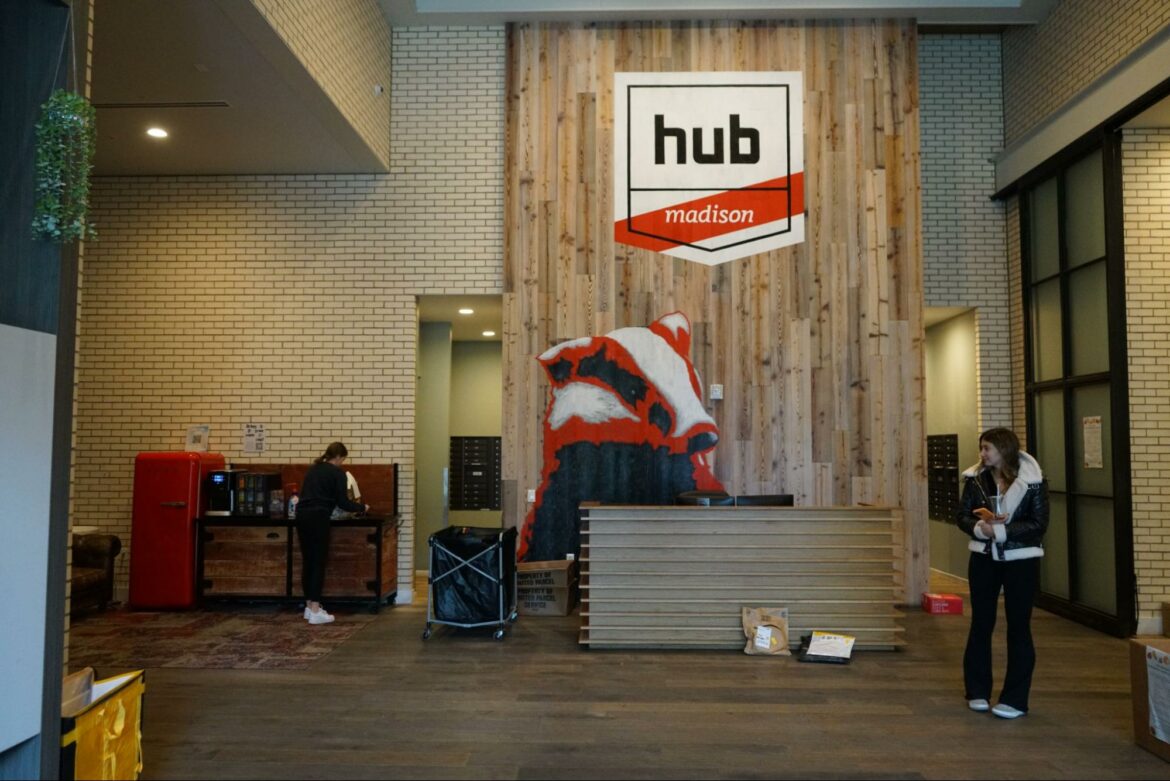In June 2023, the Madison City Council rejected the Chicago-based developer Core Spaces’ fourth luxury student housing development, Johnson and Bassett, in a 13-6 vote.
In July, the alders reconvened. Their vote, it turned out, may have been illegal. Just weeks after the initial rejection, the council accepted Core Spaces’ exact same proposal in a 17-2 vote.
Core Spaces could have sued the City of Madison for rejecting the proposal on the grounds that the development contained zero affordable housing units. Under a state law banning rent control, alders are prohibited from such considerations.
It was not always this way. A 2004 Madison city ordinance known as inclusionary zoning required that all large developments — those with more than 10 units — provide affordable units. However, affordable housing regulations can raise costs for developers, disincentivizing housing development.
In a 2006 court of appeals case, the Apartment Association of South Central Wisconsin, INC, representing developers, challenged the ordinance. The association claimed it was a form of rent control, which is banned under Wisconsin state law. The developers won, prohibiting the city from mandating affordable housing.
When alders consider affordability in voting for or against development proposals, they violate that 2006 case. Instead of voting in terms of affordability, alders must use economic incentives to encourage developers to offer affordable units.
In 2023, alders wield only one pro-affordable housing incentive, a density bonus. The bonus allows developers to exceed an area’s building height limitations by two stories in exchange for including affordable units. Those two stories afford developers greater space and thus greater revenue, which can cover losses associated with offering affordable units.
Core Spaces could have taken the density bonus for the Johnson and Bassett development but decided against it, said district 4 alder Mike Verveer, whose district includes the proposed development.
Core Spaces has spearheaded luxury student housing complexes The Hub, The James and the OLiv, with two others proposed, Johnson and Bassett, and Johnson and Broom, as these developments are provisionally named.
Luxury characterizes Core Spaces’ developments, which boast rooftop pools, game rooms, 24-hour security, study lounges, saunas, fitness centers and more.

“It’s probably the nicest place I’m ever going to live,” Lili Phung said of her college apartment in The Hub. “All of us live in either The Hub or The James,” she said, referring to her 32-person sorority class.
Her four-bedroom, two-bathroom apartment sits on the sixth floor of The Hub. Four floors below her unit is a gym, yoga room, sauna and cold plunge pool. Six floors above her unit, residents, most of them students, swim and lounge in the rooftop pool during the warm-weather months.
A 266 sq ft, single-person studio apartment at The Hub starts at $1,700 per month. The cheapest private bedroom option comes in at $1,360 per person, per month in a five-bedroom, seven-bathroom apartment. Core Spaces’ other developments are comparably priced.
The Hub, like The James and the proposed Johnson and Bassett, contains zero affordable units.
“It doesn’t just happen out of the goodness of someone’s heart,” Heather Stouder, director of the City of Madison’s planning division, said about affordable housing developments.
Stouder explained that affordable units reduce developers’ revenue, making it harder for them to keep up with construction and maintenance costs. Developers must be somehow incentivized to implement affordable housing, through tax credits and subsidies, among other things.
The density bonus is Madison’s only form of leverage against developers who have no reason to reduce profit for affordable housing’s sake.
With no density bonus and no other incentives, affordable units would do one of two things: eat away at developers’ profits or force them to raise rents for everyone else in the building, said professor Mark Eppli, director of the James A. Graaskamp Center for Real Estate at UW–Madison.
“I understand the goal, but is that the right way to go about it? From a market-based perspective, probably not,” Eppli said.
Although Core Spaces decided against the bonus on Johnson and Bassett, the developer is no stranger to the incentive.
Its soon-to-open luxury complex The OLiv took the density bonus. It will open at 14 stories — two stories above the area’s maximum height limit of 12 stories — and will offer 10% of its units at a 40% discount for qualifying students. The developer’s recently proposed Johnson and Broom development would employ the density bonus as well.
Johnson and Bassett, though, will remain at market-rate prices.
Core Spaces, Verveer said, “[does not] want the additional height, and that’s why we aren’t going to agree to affordable beds” at Johnson and Bassett.
It’s a classic supply and demand problem.
Record-breaking levels of college students at UW–Madison — more than 50,000 currently enrolled — require record-breaking levels of housing production, which Madison has yet to keep up with.
Madison is underhoused, Eppli explained. But ramped-up development, luxury or otherwise, would cause what is called “natural filtering of housing,” referring to the phenomenon of increased supply meeting increased demand. Naturally, higher-income people will rent higher-cost housing, leaving lower-cost housing for lower-income people, Eppli said.
Developers drive down rent prices and aid Madison’s housing shortage by developing very quickly, regardless of affordability, Eppli said.
In response to a request for comment, Core Spaces’ vice president of development Doug Tichenor replied by email, echoing Eppli’s sentiment. “By bringing more purpose built student housing to the market, we’re increasing the overall supply, which ultimately helps lower the price point in the market,” Tichenor wrote.
Verveer represents the area where the Johnson and Bassett development will be. He is apprehensive of the notion that all developments, regardless of price, will positively impact the housing market.
“I don’t want to say, ‘Build, baby, build at all costs,’” Verveer said. “That’s a very simplistic statement, and it doesn’t help those at the lower income levels who cannot afford the vast majority of new housing.”
Verveer is frustrated by the city council’s restricted ability to impact affordable housing in the private sector, he said.
While the density bonus is a compelling incentive, developers are in control: They decide when to take the bonus.
This problem led district 8 Alder MGR Govindarajan to meet Core Spaces at the negotiating table.
In October, the college senior sat in a room with three Core Spaces-affiliated representatives. They discussed the proposed Johnson and Broom development.
After negotiations, the proposed affordable housing agreement increased from 30 years to 40 years. They implemented a protection, which forbids the owner from dismantling the affordability model if, for example, the building is sold to a different landlord. If a landlord does break the affordability model, the city could either sue them or collect up to $8 million in damages, Govindarajan said.
Govindarajan was a vocal opponent to the Johnson and Bassett development. He was one of two alders to vote “no” on both Johnson and Bassett council votes.
“It started off a little shaky, I think,” Govindarajan said of his relationship to Core Spaces.
The affordable housing issue drove Govindarajan’s city council campaign.
As a student, he spent time advocating for the state Legislature to change housing policy to benefit renters and middle-to-low-class students. When his advocacy for student renters proved unfruitful, friends and family encouraged him to run for city council.
“The July vote made a difference. It brought developers to the negotiating table,” he said. “I’m not skilled in contract negotiation. I’m not even a real estate major. But it opens the door to understanding: ‘Wow, when we work together, when there are students in the community that put their energy behind something, a lot can actually be achieved.’”






